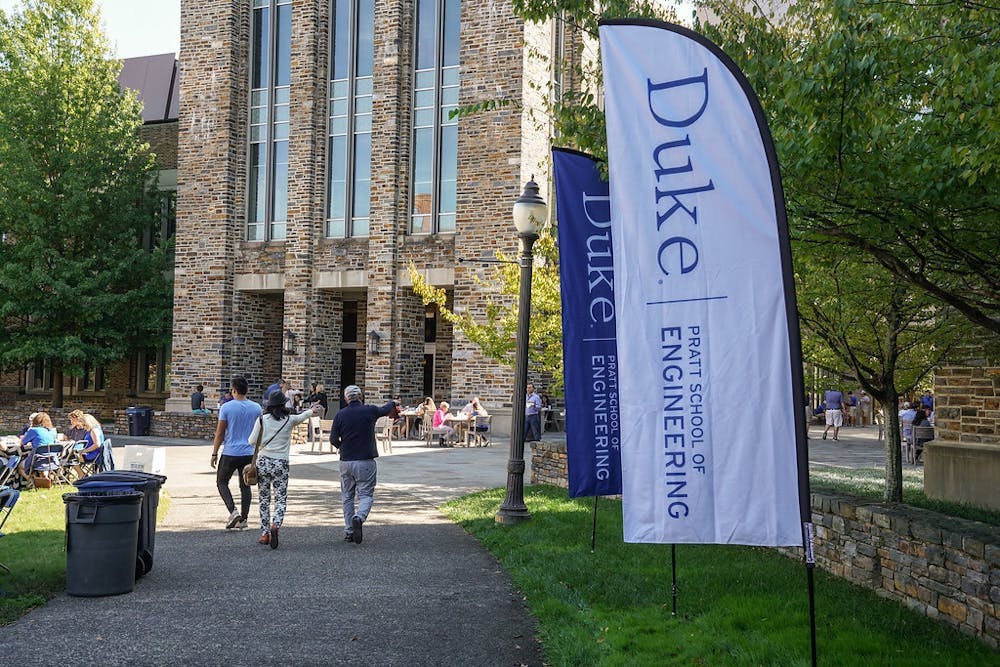When most people think of engineering courses, they imagine complex equations or intricate machines. To Rich Eva, director of the Pratt School of Engineering’s Character Forward Initiative, engineering is also about being a “good person.”
The new initiative aims to integrate ethics into engineering curriculums, with the goal of creating better engineers and people. By offering workshops, consultations and reading groups, Character Forward helps faculty integrate “character education” into their classrooms.
“We took this approach to emphasize character. We don't just want students to think about ethics but to be ethical by having good character,” Eva said. “... Character is just having virtues or positive character traits, like being honest or being just or being self-controlled.”
The Character Forward initiative is part of the Purpose Project, an effort by the Kenan Institute for Ethics which seeks to make “questions of character, purpose and meaning signature features of the Duke community.”
“Ethics education hasn’t existed for most engineers. There is nothing in the curriculum — typically, in most engineering schools — and if there is, it’s a focus on abstract ethical knowledge or reasoning,” Eva said. “Which is good, but it’s not sufficient for being a good person.”
According to Eva, the initiative recently hosted a 40-person workshop on strategies to cultivate character in students. He said that everyone in attendance came up with an idea on how to teach these skills through their work or in the classroom.
Eva also provides one-on-one consultations with faculty on how to “bring character out” in their classes.
“The cool thing about character education is that … you don't have to get rid of your engineering content and insert a book on character,” he said. “You can just change how you structure group work, how you use examples or how you interact with students.”
Character Forward was sparked by strong support within the University, including from the Kenan Institute and Jerome Lynch, Vinik dean of engineering. According to Eva, Lynch is “a big advocate of inserting character and ethics more comprehensively into the curriculum.”
“It’s really faculty [and] staff focused right now, because we want to get a bunch of people on board, and then that will filter down to students,” he said.
Eva traced the absence of ethics in higher education to the logical positivism movement, which historically viewed ethics as unscientific and outside the scope of the university. He suggested that this philosophy may have influenced the development of engineering schools.
Because we can’t predict the challenges engineers will face in two or three decades, Eva explained — making reference to the impact currently felt by AI — it’s no longer sufficient to only teach for concrete scenarios.
“I think the best approach is trying to shape the type of people [students] become while they're here,” he said. “Hopefully, better people who are more patient, honest, just, wise [and] humble, [who] make better decisions in the future regarding these futuristic, innovative technologies.”
The overarching goal for the initiative is to enrich the outcome of a college education from an academic to a more personal level.
"My hope would be that Pratt graduates don't just walk away with skills and knowledge, but they're known as being good people, good coworkers, good parents [and] good friends,” Eva said.
Get The Chronicle straight to your inbox
Signup for our weekly newsletter. Cancel at any time.
Srilakshmi Venkatesan is a Trinity first-year and a staff reporter for the news department.

